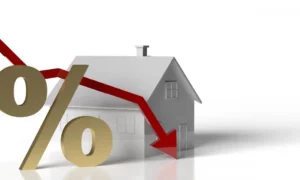Mortgages are loans used to buy homes, with the property serving as collateral. Retirement is when you stop working and rely on savings, pensions, or other income sources. Homeownership during retirement is important because it provides stability, reduces housing costs, and can be a valuable asset. However, it also comes with challenges like mortgage payments and maintenance expenses. Yet, it offers opportunities for financial security through equity buildup and potential rental income. Understanding these aspects can help in strategizing homeownership during retirement effectively, ensuring a comfortable and secure future.
Understanding Mortgages in Retirement
Understanding mortgages in retirement involves grasping the various types available, the eligibility criteria for seniors, and weighing the risks and benefits. When it comes to types, there are mainly two: traditional mortgages and reverse mortgages. Traditional mortgages work like regular loans where you pay back the borrowed amount plus interest over time. Reverse mortgages, on the other hand, allow homeowners aged 62 or older to convert part of their home equity into cash without selling the property. Eligibility criteria for seniors typically include factors like age, home equity, and financial stability. While mortgages can provide financial flexibility, they also come with risks. For instance, failing to keep up with payments can lead to foreclosure. However, they can also offer benefits like supplementing retirement income or covering unexpected expenses.
Strategies for Mortgage Management in Retirement
There are several strategies to consider when managing your mortgage during retirement. First off, early planning for homeownership sets a solid foundation. By starting to save and invest early, you can potentially pay off your mortgage before retirement, reducing financial burdens later on. Downsizing and refinancing are also viable options as you approach retirement. Downsizing to a smaller home or refinancing to lower interest rates can free up cash flow and reduce monthly expenses. However, it’s essential to carefully weigh the costs and benefits. Another option to explore is reverse mortgages. These allow homeowners aged 62 and older to convert part of their home equity into cash, but it’s crucial to understand the potential drawbacks, such as fees and reduced inheritance for heirs. Lastly, effective budgeting and financial planning are indispensable tools for managing mortgage payments during retirement.
Additionally, understanding the benefits of employer-sponsored retirement plans can further enhance financial security, as these plans often contribute significantly towards building retirement savings that can offset mortgage costs.
Creating a realistic budget and sticking to it can help ensure that mortgage payments remain manageable within your overall financial plan. By implementing these strategies, retirees can navigate mortgage management with confidence and security.
Factors to Consider in Homeownership During Retirement
When thinking about owning a home during retirement, several factors need attention to make the right decision. Firstly, consider the location and housing market trends. A location that suits your lifestyle and has stable housing prices can ensure your investment holds its value. Additionally, health and mobility considerations are crucial. Choose a home that accommodates any current or potential future mobility issues and is close to medical facilities if needed. Estate planning and inheritance are also important. Ensure your home is included in your estate plan, and consider how it will impact inheritance for your loved ones. Finally, don’t overlook the tax implications of homeownership. Understand property taxes, deductions, and any potential capital gains taxes upon sale. Taking these factors into account can help you make a sound decision about homeownership during retirement.
Alternative Housing Options for Seniors
Alternative housing options for seniors offer diverse choices beyond traditional living arrangements. Retirement communities and assisted living facilities provide tailored support and amenities for seniors seeking a more communal lifestyle. These options offer services like meal preparation, housekeeping, and healthcare assistance, promoting a sense of security and well-being. When considering housing, seniors often weigh the pros and cons of renting versus owning. Renting can offer flexibility and freedom from maintenance responsibilities, while owning provides stability and potential equity growth. Co-housing and shared living arrangements present innovative solutions for seniors looking for companionship and cost-sharing opportunities. By sharing resources and responsibilities, individuals can foster meaningful relationships and maintain independence while reducing living expenses. Exploring these alternative housing options empowers seniors to find a living situation that aligns with their preferences and needs as they age.
Conclusion
Navigating homeownership during retirement requires a thoughtful approach and proactive planning. Recapitulating key strategies and considerations underscores the importance of understanding mortgage options, such as traditional and reverse mortgages, alongside eligibility criteria and associated risks and benefits. There are New Zealand mortgage brokers that can help you navigate early planning, downsizing, refinancing, and budgeting. This empowers retirees to maintain financial security while managing mortgage payments effectively. Factors like location, health considerations, estate planning, and tax implications play pivotal roles in deciding on homeownership during retirement. Exploring alternative housing options beyond traditional living arrangements offers seniors diverse choices tailored to their lifestyle and preferences, promoting both independence and well-being. By embracing these strategies and considerations, individuals can achieve financial security in retirement through homeownership while ensuring a comfortable and stable future.



































